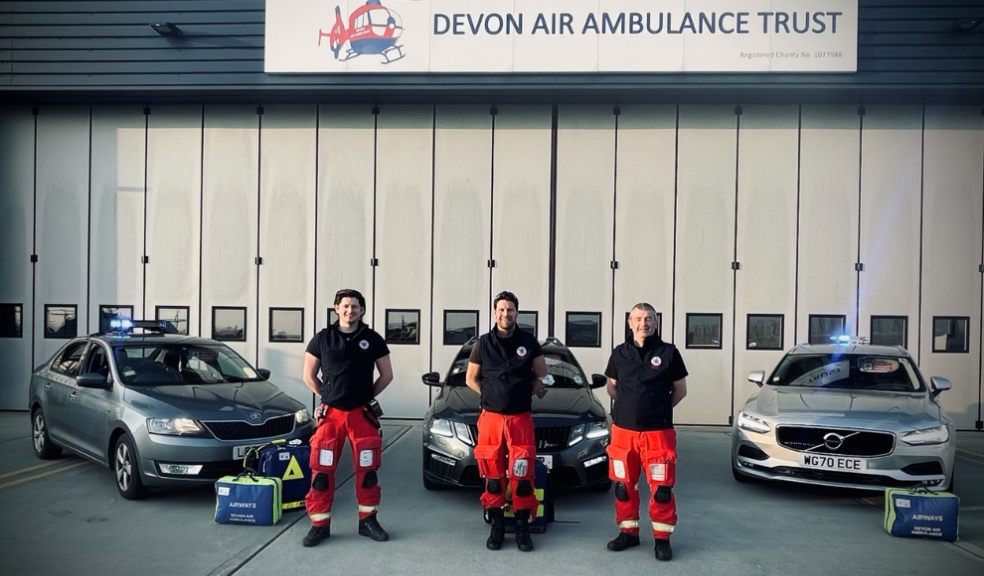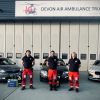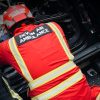
The lifesaving impact of Devon Air Ambulance’s Volunteer Responder Scheme
Following the launch of the Volunteer Responder Scheme (VRS) earlier this year clinicians have already responded to 41 cases and made a lifesaving difference.
Devon Air Ambulance Specialist and Advanced Paramedics in Critical Care not only dedicate their work to bringing advanced care to patients in time-critical situations, but they are also donating their free time to the cause as part of a 12-month trial Volunteer Responder Scheme launched in May this year.
Over the past five months, volunteer clinicians have responded to over 40 incidents, many of which were life-threatening.
Off duty but always prepared
Advanced Paramedic in Critical Care, Lee Hilton, has been instrumental in setting up this new initiative where he and two other colleagues are volunteering to support core emergency services across Devon.
This means that Helicopter Emergency Medical Services (HEMS) dispatchers can now draw upon off-duty highly skilled Devon Air Ambulance clinicians to be the first responders to an emergency they are local to.
The Volunteer Responders use their own vehicles, which means they need to acquire appropriate insurance, together with ensuring their vehicles are fully serviceable and fit for the purpose of their intended use.
In addition, volunteers need to be able to reach the scene safely, which requires blue lights and sirens. It costs approximately £5,500 to fully equip one of our volunteers with everything they need to reach and treat patients, and Devon Air Ambulance supporters have so far enabled the charity to fund this kit.
Advanced Paramedic in Critical Care Lee Hilton, who set up the scheme, says: “We are incredibly proud to be one of just a few air ambulances to launch a scheme of this type and are pleased to be able to report some positive results on the lifesaving difference Volunteer Responders are making to local communities in Devon.”
The impact of the scheme
Of the incidents attended, the volunteer responders, who are located in Ottery, Okehampton and Exeter, met with 53% of patients who were experiencing a medical incident, 38% of patients experiencing a trauma incident, and 9% of patients who experienced a combined medical and trauma incident. Busy times fell between 10-11am, 8-9pm and smaller peaks in late afternoon/early evening.
While the delivery of enhanced care, procedural skills accounted for 12% of the delivery, other benefits the volunteers brought included scene leadership, supporting complex decision making and procedural intervention.
Although participating clinicians are volunteers, there are ongoing costs accrued in the process of their work such as vehicle wear and tear and additional insurance costs amounting to around £500-£1,000 per annum.
Devon Air Ambulance responded to 1900 missions by aircraft and Critical Care Car last year. 2022 data will be made available in the New Year.
You can hear more from Advanced Paramedic in Critical Care, Lee Hilton on this Volunteer Responder Scheme Video.
If you would like to support Devon Air Ambulance and their work in communities across the organisation you can donate by visiting daat.org/donate.















